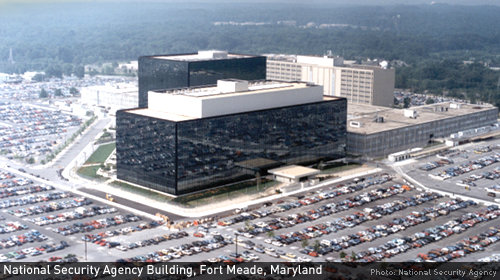Former Solicitor General, First Amendment Groups Challenge Secrecy of U.S. Surveillance Court
WASHINGTON — The American Civil Liberties Union today petitioned the Supreme Court to review whether the public has a right to access the decisions of a special federal court that rules on the legality of government surveillance. The ACLU, the Knight First Amendment Institute at Columbia University, the Media Freedom and Information Access Clinic at Yale Law School, and former Solicitor General Theodore B. Olson filed the petition regarding the rulings by the Foreign Intelligence Surveillance Court (FISC).
“Secret court rulings are corrosive in a democracy, especially when they so often hand the government the power to peer into our digital lives,” said Patrick Toomey, senior staff attorney at the ACLU’s National Security Project. “Americans’ privacy rights rise or fall with the court’s decisions, which increasingly apply outdated laws to the new technologies we rely on every day. These opinions are the law and they should be public, not kept hidden where only a secret court and the government know what they mean for our rights.”
Congress created the FISC in 1978 to authorize and oversee electronic surveillance conducted for foreign intelligence purposes. The FISC’s role was originally narrow, but today, as the result of legislative changes and new technology, the court evaluates broad surveillance programs — including programs that involve the collection of emails, phone records, and internet browsing data — that can have profound implications for Americans’ privacy, expressive, and associational rights.
The FISC operates behind closed doors and does not customarily publish its decisions. Although Congress required the government to review significant FISC opinions for public release when it passed the USA FREEDOM Act in 2015, that review is conducted solely by executive branch officials, not a court. In addition, the government has refused to apply this requirement to FISC opinions issued prior to June 2015. All of the opinions at issue in this case predate June 2015 and have been withheld from the public in their entirety.
“This specialized court originally had a narrow role but today it routinely issues decisions that have far-reaching implications for Americans’ rights,” said Theodore B. Olson, who served as solicitor general under President George W. Bush. Olson argued before the Foreign Intelligence Surveillance Court of Review (FISCR) and is now a member of the Knight Institute’s board. “It’s crucial to the legitimacy of the foreign intelligence system, and to the democratic process, that the public have access to the court’s significant opinions. As we explain in our petition, it’s simply untenable to hold, as the Foreign Intelligence Surveillance Court effectively did, that whether the court’s opinions are published is up to the executive branch alone to decide.”
In motions filed over a period of almost a decade, the groups have argued that the First Amendment requires the FISC to make its legal opinions public, with only those redactions necessary to serve compelling government interests. Today’s petition asks the Supreme Court to review decisions that the FISC and FISCR issued in and of last year, which held that the courts lack jurisdiction even to consider whether the First Amendment guarantees the public a qualified right of access to the FISC’s opinions. The petition explains that disclosure of the FISC’s opinions would “educate the public about government activity that affects individual rights, ensure a more informed public debate about the reach of government surveillance, increase the perceived legitimacy of the FISC and the surveillance it authorizes, and allow other courts to engage with the FISC’s rulings, to the benefit of those courts as well as the FISC.”
“Informed debate about government surveillance is impossible if the public doesn’t have access to the court opinions that evaluate the government’s surveillance activities,” said Jameel Jaffer, the Knight Institute’s executive director. “Public access to these opinions will allow the public to better understand what the court has authorized and what the surveillance agencies are doing. Of course, it may sometimes be necessary to redact these opinions, but here, as in other contexts, the courts must ensure that redactions satisfy First Amendment standards. The Foreign Intelligence Surveillance Court isn’t exempt from the First Amendment rules that apply to other courts.”
Read today’s petition here:
/legal-document/supreme-court-petition-challenging-secrecy-us-surveillance-court
Read more about this case here:
/cases/aclu-motions-requesting-public-access-fisa-court-rulings-government-surveillance


